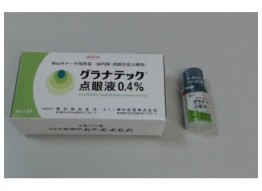Top 5 Japanese Medications Against Flu, Cough, and Cold
If you suffer from flu, cough, stuffy or runny nose, sore throat, fever, sinus pain, and various similar symptoms, consider using a cold medication Japan. Such remedies can be available in the format of tablets, cream, granules, or others. Most of them are sold over the counter and are made of top-quality ingredients. This article will suggest five best medications that can be used to achieve quick relief and to secure the result for the long run.
Bakumondoto
If drugs got medals for their efficiency, this remedy would obtain the one made of gold. It is for patients with dry cough and throat, provided they are aged at least five years old and are not elderly.
ATTENTION: The product belongs to the Kampo category, which means it is herb-based and works according to the principles of traditional Japanese medicine. Modern science has sufficiently proved the effectiveness of this solution, so consumers can entirely trust it.
One should take these tablets three times per day before or between meals. The number of tablets depends on the person's age. As a result, the patient can get rid of bronchitis, bronchial asthma, pharyngitis, and other similar conditions.
Lyfnua
Consider this solution if your quality of life deteriorates because of refractory or unexplained chronic cough. Even if other treatments fail to help, Lyfnua might bring relief. It targets the mechanism that triggers the problem by selectively inhibiting nerve switches.
The target audience of the product includes only adults. They should take one tablet twice per day. Individuals with kidney issues might need to avoid Lyfnua or limit themselves to one tablet daily, so please consult your healthcare professional for details.
ATTENTION: If your sense of taste gets distorted during the course of treatment, don't worry — it will come back to normal later, when you become an ex-patient.
Medicon
This medication contains dextromethorphan, which is a synthetic derivative of morphine. It comes in handy for managing cough among patients with tuberculosis, bronchitis, pneumonia, cold, and other diseases with non-productive coughs. Instead of affecting the respiratory center, Medicon impacts the central nervous system to suppress the cough reflex.
Intake recommendations can vary significantly from one person to another, so please consult your doctor in advance. The maximum number of tablets that one can take per day is eight, and the minimum is one.
.jpg)
Swift Cold Cease
These granules can help to overcome a wide range of cold symptoms, from sneezing to muscle pain. The product features a complex of ingredients that synergetically target varied issues, so that you feel relief and a gentle stimulant effect.
Swift Cold Cease suits adults and teenagers aged over 12 years old. The standard dosage is one sachet thrice per day — and for individuals aged 14 or younger, it's ⅔ sachets thrice per day. Ideally, you should take this solution within 30 minutes after meals.
Acetaminophen K
These paracetamol-based tablets come in handy for patients of almost all ages, except elderly individuals and kids younger than five years old. The product helps to overcome cold, fever, and nearly any type of pain that one might feel in their body. In particular, this solution is highly efficient against tooth pain and pain after the tooth extraction. Acetaminophen is safer than many analogs because it doesn't provoke drowsiness or irritate the stomach surface.
Conclusion
The list of the top Japanese medicines against colds from this article is far from being exhaustive. The selection of common and highly efficient brands also includes Pai, Pabron, Contac, and dozens of other names. Feel free to explore them one by one and hand-pick those that suit you best!


